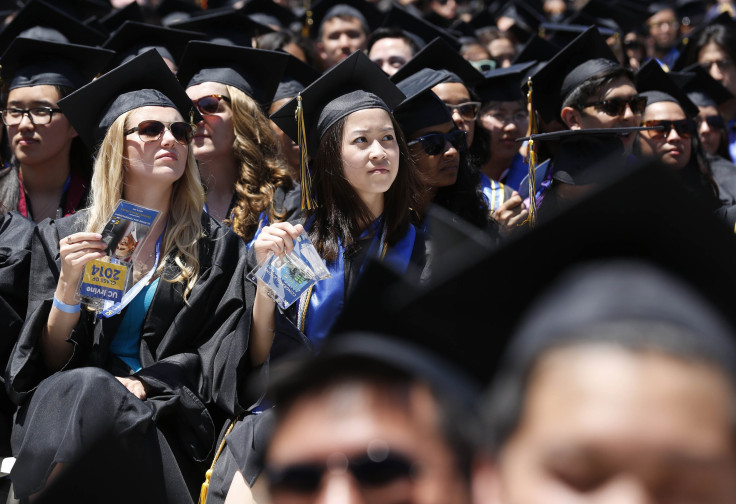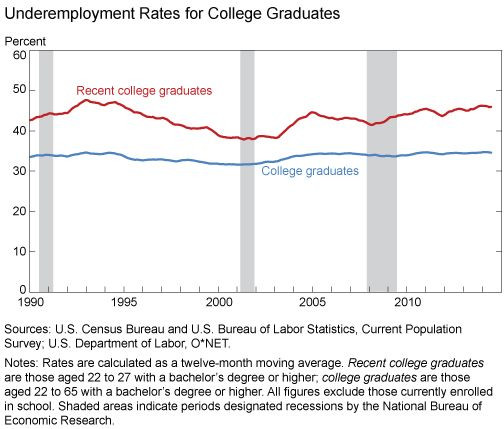Are College Grads Destined For Jobs As Baristas And Clerks? Federal Reserve Economists Explain

While more recent college graduates are finding jobs, they're not necessarily finding good ones, according to an analysis of employment demand by economists at the Federal Reserve Bank of New York.
Just ahead of the monthly U.S. jobs report due Friday, the writers analyzed employment demand for recent grads in a series of posts for the Liberty Street Economics blog. The value of a college degree has been much debated in recent months, amid the mushrooming size of student loan debt.
On the bright side: The unemployment rate for recent college graduates (22- to 27-year-olds with a bachelor's degree or higher) is trending down. It peaked around 7 percent in 2011, and has since fallen to just above 5 percent.
However, while the unemployment rate has dropped, the underemployment rate, for both recent college grads and for all college grads (those aged 22 to 65), has been rising since 2003. "Underemployment" refers to jobs that generally don't require one to have a college degree, and for recent college grads, that rate has reached 46 percent. For all college graduates, it is 35 percent.
"While more recent graduates are finding jobs, they aren’t necessarily finding good ones," write Jaison R. Abel and Richard Deitz.
Here's a chart showing the rise in underemployment:

Now, some "non-college jobs," which Abel and Deitz define as positions that don’t typically require a bachelor’s degree, are better than others. The economists consider a "good" non-college job (think dental hygienist, electrician, mechanic) to be one that pays about $45,000 or more per year, compared to low-wage jobs that pay $25,000 or less. If there's a "silver lining" to the underemployment phenomenon, it's that "since 2013, a larger share of recent college graduates have found good non-college jobs, while the share of recent college graduates working in low-wage jobs has held steady," the blog post notes.
The real lesson, though, seems to be that recent college graduates can't compare themselves to higher-earning college graduates of the past, but must consider what life looks like without a college degree altogether. As Abel and Deitz detail in a separate article, college graduates tend to earn about 56 percent more than high school graduates.
"Thus," they write, "while the challenges recent graduates have faced in finding a good job might mean that that a college degree will not be as lucrative as it once was, having one is likely to remain better than the alternative."
UPDATE: This story has been updated to include the researchers' definition of “non-college jobs."
© Copyright IBTimes 2024. All rights reserved.





















